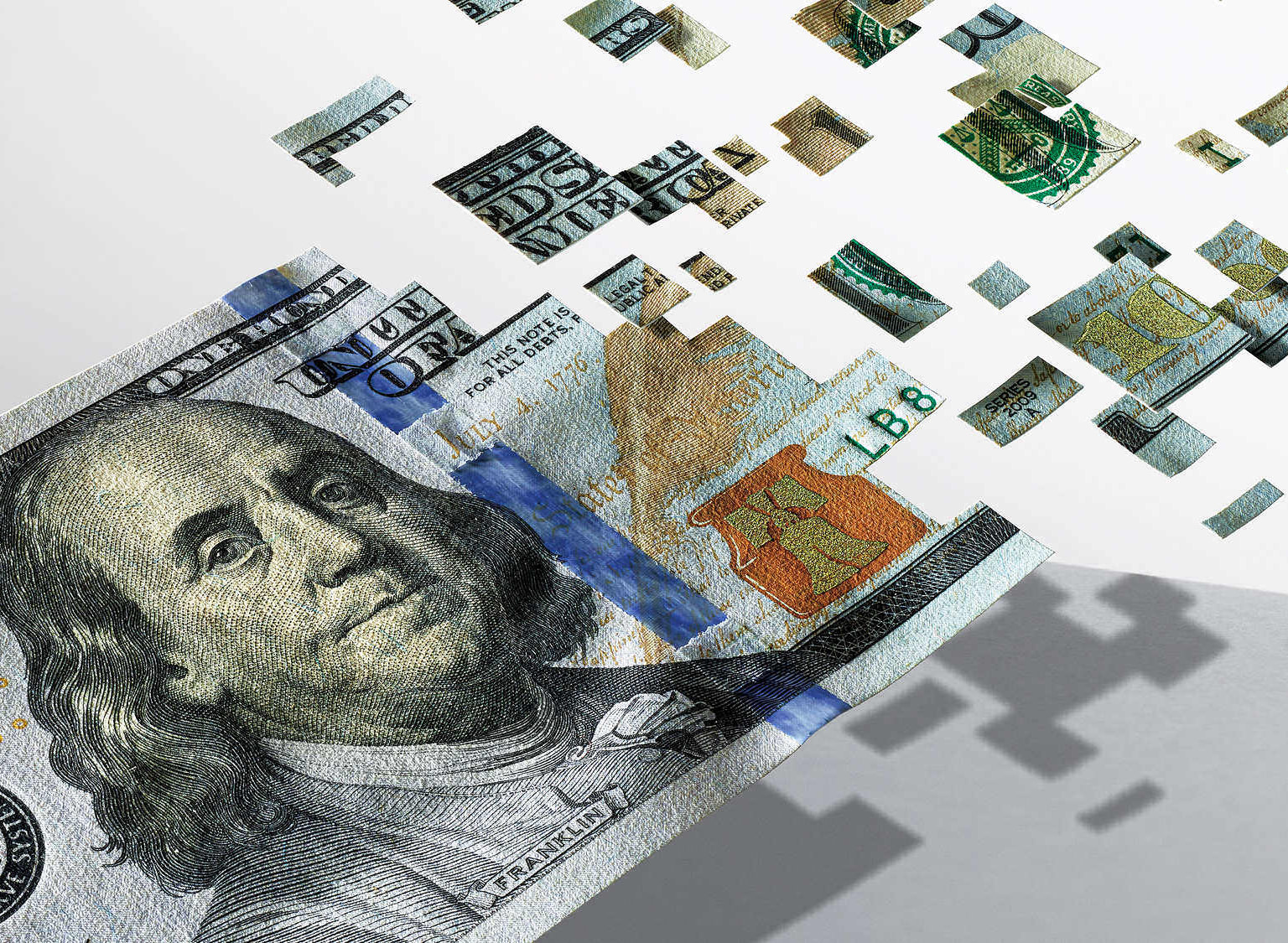Currency has gone from cows to coins to paper to plastic. The next big disruption? We could all be spending digital dough.

THE NEXT TIME you pull a tattered $5 bill out of your pocket to pay for a coffee, consider the fact that you’re handling one of society’s oldest and most important inventions: money. Relatively soon after humans decided that we liked living in groups, instead of in panda-style isolation, we came up with ways to value what we had—and make people pay for it. We bartered cattle and grain until the Lydians—the Bronze Age inhabitants of what is modern-day Turkey—realized those were hard to stuff into a wallet, and introduced government-minted coins. It turned out coins were still a pain to carry around, so eventually they evolved into the paper money we all use today.
But paper was still just a stand-in for metal:Sure, coins mostly disappeared, but we were symbolically carrying gold around in the pockets of our bell-bottom jeans until 1971, when Richard Nixon took the U.S. off the gold standard. Divorced from the physical, money became a kind of belief system. It went from representing something precious and valuable to representing value in and of itself. Everyone agrees that if you walk into Starbucks with a $5 bill, you can walk out with a latte.
This story is from the January - February 2016 edition of Popular Science.
Start your 7-day Magzter GOLD free trial to access thousands of curated premium stories, and 9,000+ magazines and newspapers.
Already a subscriber ? Sign In
This story is from the January - February 2016 edition of Popular Science.
Start your 7-day Magzter GOLD free trial to access thousands of curated premium stories, and 9,000+ magazines and newspapers.
Already a subscriber? Sign In
They Might Be Giants
A photographer-and-ecologist team are on a mission to document the forests’ mightiest members.
Droplet Stoppers
Covid-19 made face masks a crucial part of every outfit, and we’re likely to don them in the future when we feel ill. Fortunately, there’s a style for every need.
Landing a Lifeline
For those whose livelihood depends on the ocean, a covid-spurred interruption in the seafood market might speed progress toward a more sustainable future—for them and for fish.

Headtrip – Your brain on video chat
Dating, Catching up with family, and going to happy hour are best in person.

Behind The Cover
Butterflies may seem delicate, but they are surprisingly tough.

Tales From the Field – A cold one on mars
Kellie Gerardi, bioastronautics researcher at the International Institute for Austronautical Science
The Needs Of The Few
Designing with the marginalized in mind can improve all of out lives.
Life On The Line
On the Western edge of Borneo, a novel conservation-minded health-care model could provide the world with a blueprint to stop next pandemic before it starts.

waste watchers
YOU CAN TURN FOOD SCRAPS INTO FERTILIZER IN ALMOST ANY CONTAINER. THESE BINS USE THEIR OWN METHODS TO ENCOURAGE THE PROCESS, BUT BOTH KEEP BUGS AND STINK AT BAY.

why can't i forget how to ride a bike?
LEARNING TO PEDAL IS NO EASY FEAT.